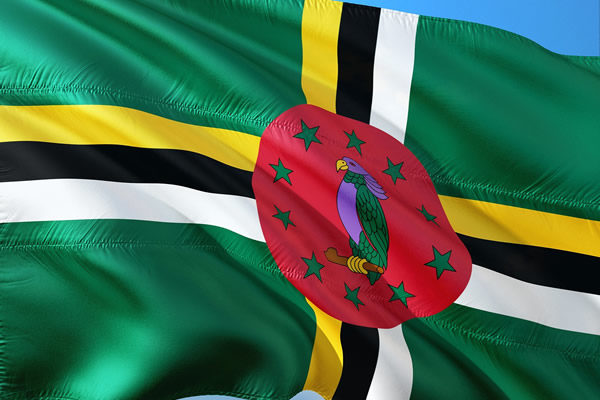Lawsuit launch will complete trifecta of legal challenges in Caribbean countries with many of the harshest anti-LGBT laws
June 24, 2019 — A gay man, who must remain anonymous for his own protection, is about to file a landmark case challenging Dominica’s homophobic laws that criminalise “buggery” and “gross indecency,” targeting the consensual sexual activity of LGBT people. With support from the Canadian HIV/AIDS Legal Network (“HIV Legal Network,” an international human rights organization), the University of Toronto’s International Human Rights Program, and other likeminded groups, this important case will demonstrate that these horrific and outdated laws violate human rights guaranteed in the Constitution of Dominica.
The lawsuit, now finalised, will be formally filed in Dominica in the coming weeks, and follows the launch of similar legal challenges supported by the HIV Legal Network in both Jamaica (2015) and Barbados (2018), which are both underway. In the Caribbean context, these three countries lay claim to some of the worst anti-LGBT laws that violate human rights and all-too-often result in State-sanctioned violence against LGBT people.
The two key sections of the Sexual Offenses Act (SOA) of Dominica being challenged are section 16, which criminalises anal sex with a maximum penalty of 10 years’ imprisonment and the possibility of forced psychiatric confinement, and section 14, which is a sweeping law criminalising “gross indecency” (including any sexual activity between same-sex partners) with a maximum penalty of 12 years in prison.
The claimant at the centre of this case is a gay man who could face more than a decade in prison for private sexual intercourse with consenting adult same-sex partners. Already, he has experienced homophobic hostility, discrimination, harassment, threats, and physical and sexual assaults fueled by these hateful laws. In one instance, he was savagely attacked in his own home, yet police refused to investigate and allowed his attacker to remain free.
“These brutal and often life-threatening experiences are sadly not unique and are instead a daily reality of many LGBT people in Dominica, and elsewhere in the Caribbean. Because the law criminalises all LGBT people, it sends a powerful message that other people — whether law enforcement or regular citizens on the street — are entitled to discriminate and commit human rights abuses against LGBT individuals,” says Darryl Philip, Founder and Head of Minority Rights Dominica (MiRiDom). “The launch of this case coincides with World Pride and the 50th anniversary of Stonewall. While people are rightfully celebrating, I implore us all to remember that LGBT people are still harshly criminalised in many parts of the world.”
These laws violate multiple fundamental rights of all people in Dominica, but especially the rights of LGBT people. They also undermine an effective response to HIV among gay men and other men who have sex with men.
“Dominica is in the midst of an ongoing HIV crisis. A man seeking HIV testing or visiting the doctor for a check-up who indicates he is sexually active with a male partner is actually confessing to a crime. This reality poses significant barriers to effective HIV and AIDS health programs,” says Maurice Tomlinson, Senior Policy Analyst at the HIV Legal Network and a Jamaican citizen. “Changing these laws is both a human rights and public health imperative.”
The ultimate goal of these legal challenges is to end the criminalisation of consensual sexual activity between people above the age of consent, in particular among same-sex partners. The courts can make binding decisions obliging the state to end any breach of the Constitution, including by changing its laws. As has been shown in the United States, Belize, Trinidad and Tobago, India and Botswana, court cases are the most effective way of ending these laws when governments are either too slow or too afraid to act.
“While some people are forced to flee their country of origin to escape anti-gay laws and the violence that often accompanies them, others do not have that opportunity or do not wish to leave their home,” says Tomlinson. “With this case, we hope to provide the LGBT people of Dominica with the important, life-affirming option to stay, if they so choose. We want to bring an end to the hateful laws that plague our countries, one legal challenge at a time.”
Here is a backgrounder (Q&A) answering some key questions related to this case.
Contact: Emma Riach, Communications and Campaigns Officer Canadian HIV/AIDS Legal Network Telephone: +1 416 595-1666 ext. 236 Email: eriach@aidslaw.ca |
Media Coverage:
Washington Blade, June 24, 2019: https://www.washingtonblade.com/2019/06/24/gay-man-plans-to-challenge-dominica-sodomy-law/

